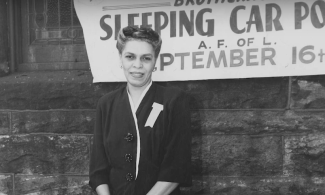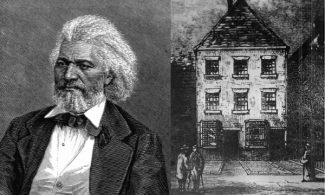AMA from Newly Converted Maximum Fun Co-op
What were your motivations to become a co-op? Was this always in the back of everyone's minds?
How did the transition period to co-op work, financially and culturally?
Are you aware of the solar punk genre? What's the possibility that we're getting some solar punk related pods in the future?
NASCO Institute 2023
Affirming Institutions: Co-ops for Social Change
Inspired by the words of celebrated changemaker Ruth Wilson Gilmore: “Abolition is about presence, not absence. It's about building life-affirming institutions.”
At NASCO Institute 2023, we’ll explore the role of co-ops in this map of life-affirming institutions that light our way to a world beyond punishment and exploitation.
Announcement: meet.coop 2.0 is here!
We are delighted to announce that the transition to meet.coop 2.0 is underway, with a new cooperative team in place, fresh impetus, and the same mission: to provide a values-driven
solidarity economy alternative to the big-tech video-conferencing platforms.
3 key things you need to know about this transition:
1: A New Cooperative Team
Solidarity-Based Productive Chains
Production chains are constituted by all the stages necessary for producing, distributing and commercializing goods or services until they reach their final consumption. For some, the concept also includes a products financing, developing and advertising processes, considering that such costs are part of the final cost, adding value to that cost which will be recovered by the sale of the product.
Democratic Control of REI Co-op Matters!
We, concerned members of REI Co-op, believe it is crucial for the health of our cooperative that our Board of Directors act in accordance with the central principle all cooperatives are founded on, “democratic member control.” As REI Co-op has grown, this main principle has been significantly weakened by Board actions and no longer plays a critical role in the governing practices of our co-op.
As a result, co-op members need a genuine voice in our co-op's governance affairs, and REI's Board should be held accountable for its actions.
Will big money kill off community ownership in League of Ireland?
The member-owned model taps into that heart and local embeddedness central to the LOI's authenticity. In contrast to private ownership, member-ownership is driven by the view that supporters should be viewed as stakeholders rather than consumers. Co-operative clubs are not driven purely by profit, they offer supporters a voice in their clubs, and challenge the ever-growing agenda that football clubs are toys for the wealthy or state-backed investment vehicles for sportswashing.
Book Launch - Practical Radicals: Seven Strategies to Change the World
How do underdogs, facing far stronger opponents, sometimes win? In the tradition of Saul Alinsky’s Rules for Radicals and Sun Tzu’s The Art of War, Deepak Bhargava and Stephanie Luce’s Practical Radicals offers winning strategies, history, and theory for a new generation of activists. Based on interviews with leading organizers, this groundbreaking book describes seven strategies to bring about transformative change.
At IMPACT 2023, worker co-op session sparks cross-sector innovation and opportunity
Hundreds of cooperators from across sectors gathered in Washington, DC, for the 2023 Cooperative IMPACT Conference the first week of October, kicking off National Co-op Month. The agenda on Thursday, October 5 included a session called “Innovation Through Worker Cooperatives,” which solicited attendees’ input on how the broader co-op community can engage worker cooperatives, perhaps the fastest growing co-op sector in the U.S.
The Cooperative Balancing Act – Patronage v. Equity
One of the biggest debates within ag cooperatives is the use of patronage and the balancing act between patron relations, income taxes, and equity management. Patronage can be seen as a marketing tool or a way to avoid income taxes. On the flip side, it can be seen as a strategic concept used to manage equity, current ownership, and the betterment of the facilities to which the producer has access. Some cooperatives pay based on what the maximum amount allowable is, others pay a fixed percentage of income each year, others a flat amount per bushel or in total.





